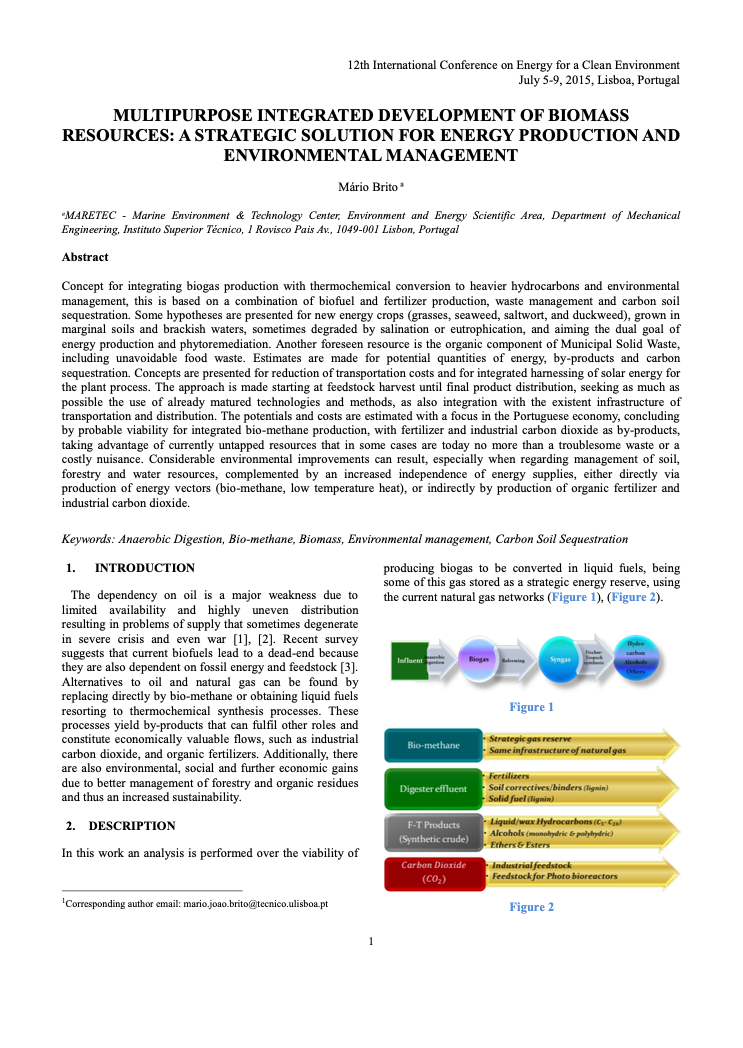Filter opties

Europe
ETIP Bioenergy: Position paper on sustainable biomass supply | 2025
The position paper by The European Technology and Innovation Platform (ETIP) Bionergy on sustainable biomass supply brings forward the opportunities, challenges and recommendations towards 2030 to accelerate biomass in the energy system.

Report from Roundtable: Financing further development of advanced biofuel production in The Netherlands
Dutch Platform Renewable Fuels held a roundtable meeting with two international experts, Mr. Jim Spaeth and Mr. Kyriakos Maniatis to discuss how the Netherlands can further accelerate the scale-up of advanced biofuel production.
Shell cancels biofuel production position in Port of Rotterdam
On 3 September 2025, Shell communicated the decision not to proceed with the construction of the biofuel plant in Rotterdam (Pernis).
Xu et al: Landscape Metrics and Land‑Use Patterns of Energy Crops in the Agricultural Landscape | 2023
This study investigates the spatial patterns and surrounding land uses of energy crops compared to traditional cereal crops in Sweden, and how these patterns evolved over time.

Brito: Multipurpose integrated development of biomass resources - A strategic solution for energy production and environmental management | 2015
This research paper investigates the integration of biogas production with thermochemical conversion to heavier hydrocarbons and environmental management with a focus on the Portuguese economy. The findings demonstrate that considerable environmental improvements can be achieved.

European Economic and Social Committee: Opinion - A European Liquid Fuels Strategy | 2025
The opinion piece from European Economic and Social Committee (EESC) calls for a comprehensive European strategy for sustainable liquid fuels. The piece emphasizes the need to transition from fossil fuels to decarbonized and renewable alternatives in transport.

Retrospective: Roundtable Poland-NL about collaboration for renewable fuels
On Thursday February 27th, the first Roundtable Poland-NL took place to explore possible collaborations for renewable fuel production. The meeting was an introduction to the polish context for renewable fuel production, exploring the market opportunities and challenges in Poland.
PHB: Mass balance methodology for renewable fuels in transport / Massabalansmethodiek voor hernieuwbare brandstoffen in transport | 2025
The Platform conducted a market study on mass balancing rules for the delivery of renewable fuels via interconnected infrastructures in the Netherlands and other Member States.

Repsol will invest more than €800 million to produce renewable methanol at the Tarragona Ecoplant
Repsol recently approved a historic investment to build the first plant in Europe to transform urban waste into renewable methanol in the Spanish region of Catalonia. Renewable methanol is a fuel that will help defossilizing the transport sector and make circular products.

PHB roundtable workshop: Clean Fuel Contracts - How to govern Distributed Ledger Technologies in the renewable fuel sector | 2024
Platform Renewable Fuels organised a roundtable workshop titled CleanFuel Contracts: How to govern Distributed Ledger Technologies in the renewable fuel sector where various stakeholders along with the government (RVO) came together.

Call for Demand Creation; letter to European Commissioner Wopke Hoekstra | 2024
Coalition of companies, trade associations call on EU to create market demand for clean industrial products. The Call for Demand Creation is signed by 77 branches and organisations.
Europa kan zelfvoorzienend zijn met eigen hernieuwbare energie en biogrondstoffen
Het is mogelijk om met Europese hernieuwbare energiebronnen en biogrondstoffen te voorzien in de vraag in 2040, laat CE Delft zien in Rapport "Energy sources and demand in 2040"

EC: Guidance on RFNBO targets in the RED | 2024
The European Commission published a guidance on how to interpret the RFNBO targets in the Renewable Energy Directive for transport and industry. Among others, it provides direction on biorefining, the refinery route and mass balancing of hydrogen.

CE Delft: Energy sources and demand | 2024
CE Delft recently published a study on Energy sources and sectoral demand in the European Union focusing on investigating whether the EU27+3 will be self-sufficient in its demand for CO2-free energy sources and competing feedstocks in 2040.





